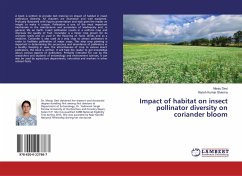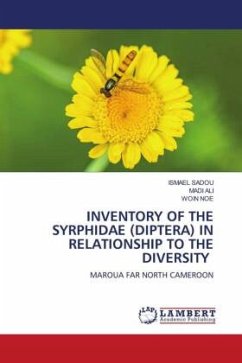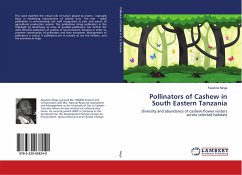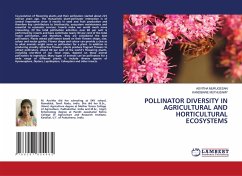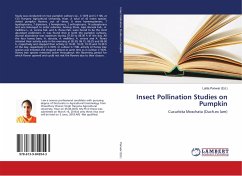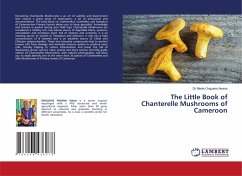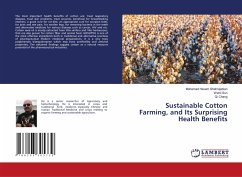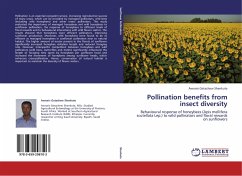
Pollination benefits from insect diversity
Behavioural response of honeybees (Apis mellifera scutellata Lep.) to wild pollinators and floral rewards on sunflowers
Versandkostenfrei!
Versandfertig in 6-10 Tagen
32,99 €
inkl. MwSt.

PAYBACK Punkte
16 °P sammeln!
Pollination is an essential ecosystem service, increasing reproductive success of many crops, which can be provided by managed pollinators, wild bees (including wild honeybees) and other insect pollinators. This study evaluated the importance of managed honeybees and wild honeybees to sunflower pollination, the response of honeybees to different levels of floral rewards and to behavioural interactions with wild flower visitors. The results showed that honeybees were efficient pollinators, improving sunflower production. Moreover, wild honeybees were found to be as efficient as managed honeybee...
Pollination is an essential ecosystem service, increasing reproductive success of many crops, which can be provided by managed pollinators, wild bees (including wild honeybees) and other insect pollinators. This study evaluated the importance of managed honeybees and wild honeybees to sunflower pollination, the response of honeybees to different levels of floral rewards and to behavioural interactions with wild flower visitors. The results showed that honeybees were efficient pollinators, improving sunflower production. Moreover, wild honeybees were found to be as efficient as managed honeybees in sunflower pollination near to natural habitat. The higher amount of nectar present in the florets of sunflower significantly increased honeybee visitation length and reduced foraging rate. However, interspecific competition between honeybees and wild pollinators (wild bees, butterflies and moths) significantly influenced the length of foraging time spent by honeybees per sunflower head and increased the movement of honeybees among sunflower heads, which enhances cross-pollination. Hence, conservation of natural habitat is important to maintain the diversity of flower visitors.



